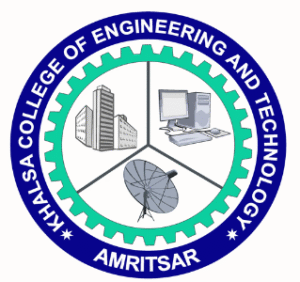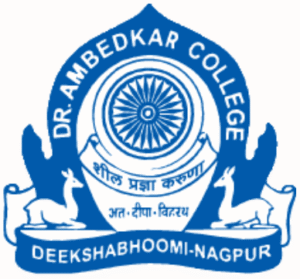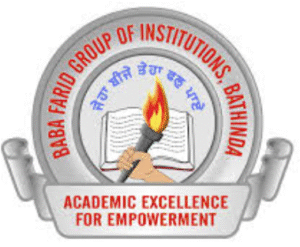B.Tech in India
Many reputed engineering colleges across India offer B.Tech programs, known for delivering top-tier technical education and research exposure. These institutions also provide advanced programs like M.Tech, MBA (Tech), and PhD in specialized engineering fields.
To pursue a B.Tech degree in India, appearing for engineering entrance exams like JEE Main, JEE Advanced, or state-level engineering tests is mandatory, depending on the institution type. Before applying, it’s important to know the different types of engineering colleges and their respective seat intake capacities.
Types of Engineering Colleges & Seat Intake in India
| Type of College | No. of Colleges | B.Tech Seats (Approx.) |
|---|---|---|
| IITs (Indian Institutes of Technology) | 23 | 17,500 |
| NITs (National Institutes of Technology) | 32 | 24,500 |
| IIITs (Indian Institutes of Information Technology) | 26 | 7,000 |
| Government & State-funded Engineering Colleges | 400+ | 1,50,000+ |
| Private Engineering Colleges | 3,500+ | 12,00,000+ |
| Deemed Universities & Autonomous Colleges | 120+ | 70,000+ |
| Total | ~4,100+ | ~14,70,000+ |
Introduction
Pursuing a B.Tech in India is a great choice for students passionate about technology and innovation. Renowned institutes like IITs, NITs, BITS Pilani, and VIT offer world-class education, research, and industry exposure. With advanced labs, expert faculty, and globally recognized curricula, Indian engineering colleges prepare students for top careers and higher studies in India and abroad.
Why Choose B.Tech in India?
- Hub of Innovation: India has emerged as a leader in STEM and IT education, producing top engineers who contribute globally.
- Extensive Network of Colleges: Over 4,000 engineering colleges offer diverse specialization options spanning computer science, electronics, civil, mechanical, AI/ML, robotics, and more.
- Abundance of Seats & Diversity: With more than 14 lakh B.Tech seats annually, there’s a wide scope for aspiring engineers to secure admissions.
- Career Prospects: Engineering graduates find opportunities in tech companies, research labs, startups, PSUs, and government organizations.
- Skill-based Training: Colleges emphasize hands-on projects, internships, and real-world exposure, ensuring industry readiness.
- Global Reach: Many engineering institutions in India collaborate with foreign universities, providing opportunities for exchange programs and global exposure.
- Research & Innovation Culture: Students engage in national and international hackathons, incubation programs, and industry-tied research projects.
Important Details about B.Tech
| Particulars | Details |
|---|---|
| Name of the Course | Bachelor of Technology |
| Popularly Known as | B.Tech |
| Level of Course | Undergraduate |
| Type of Course | Degree |
| Duration of B.Tech in India | 4 years (8 semesters) |
| Internship | Mandatory internship/project in 7th/8th semester |
| Eligibility | Passed Class 12 (PCM) with at least 50–75% marks (depending on college) |
| Minimum Age | 17 years |
| Number of Colleges | 4,000+ (IITs, NITs, IIITs, state & private colleges) |
| Number of Seats | ~14.7 lakh annually |
Entrance Exams for B.Tech Admission in India
Admission to B.Tech programs is largely entrance exam-based:
National Level
- JEE Main: Conducted by NTA for admission to NITs, IIITs, and state colleges.
- JEE Advanced: For admission to the IITs.
Institute-Level
- BITSAT (BITS Pilani)
- VITEEE (VIT University)
- SRMJEEE (SRM University)
State-Level
- WBJEE
- KCET
- MHT CET
- AP EAMCET
- TS EAMCET
- KEAM
B.Tech Cutoff for Admission in India
Each year, admission cutoffs vary depending on:
Difficulty level of the entrance exam
Number of applicants
Availability of seats
Reservation policies
Key Takeaway
Pursuing B.Tech in India provides a blend of strong academics, practical exposure, global opportunities, and excellent career prospects across all sectors — from tech giants (Google, Microsoft, Amazon) to core industries (PSUs, ISRO, DRDO, ONGC).
B.tech colleges
Maharishi Markandeshwar University
- City : Haryana
- Courses offered : B.Tech, M.Tech, and others.
- Duration : 4 years, 8 semesters.
- Location : MM Education Complex, Mullana, Haryana 133207.
Vivekananda Global University
- City : Jaipur
- Courses offered : B.Tech
- Duration : 4 years, 8 semesters.
- Location : 3, Sec-36 NRI Road, Jagatpura Getor, Jaipur, Rajasthan - 302017.
Tula’s Institute
- City : Uttarakhand
- Courses offered : B.Tech, M.Tech, and others
- Duration : 4 years, 8 semesters.
- Location : Dhoolkot, PO-Selaqui, Chakrata Road, Dehradun, Uttarakhand, India, 248011
Gulzar Group Of Institutes
- City : Punjab
- Courses offered : B.Tech, M.Tech, and others.
- Duration : 4 years, 8 semesters.
- Location : Grand Trunk Road Libra, Khanna, Punjab 141412.
Guru Kashi University
- City : Uttarakhand
- Courses offered : B.Tech, M.Tech, and others
- Duration : 4 years, 8 semesters.
- Location : Guru Kashi University, Sardulgarh Road, Talwandi Sabo, Punjab 151302.
Sandip University
- City : Bihar
- Courses offered : B.Tech, M.Tech, and others.
- Duration : 4 years, 8 semesters.
- Location : Sijoul, Madhubani, Bihar, India
Marwadi University
- City : Gujarat
- Courses offered : B.Tech, M.Tech, and others
- Duration : 4 years, 8 semesters.
- Location : Marwadi University Rajkot-Morbi, Road, PO, Gavridad, Gujarat 360003
Khalsa College of Engineering and Technology.
- City : Amritsar
- Courses offered : B.Tech
- Duration : 4 years, 8 semesters.
- Location : C Block, Ranjit Avenue, Amritsar, Punjab 143001.
Bhai Gurdas Group of Institutions
- City : Sangrur
- Courses offered : B.Tech, M.Tech, and others
- Duration : 4 years, 8 semesters.
- Location : Main, Patiala Rd, Sangrur, Punjab 148002
Roorkee Institute of Technology
- City : Roorkee
- Courses offered : B.Tech
- Duration : 4 years, 8 semesters.
- Location : Puhana - Jhabrera Rd, Puhana, Roorkee, Uttarakhand 247667
Mangalmay Group of Institutions
- City : Greater Noida
- Courses offered : B.Tech, M.Tech, and others
- Duration : 4 years, 8 semesters.
- Location : Greater Noida, Uttar Pradesh.
GNIOT Institute of Management Studies
- City : Greater Noida
- Courses offered : B.Tech, M.Tech, and others.
- Duration : 4 years, 8 semesters.
- Location : Greater Noida, Uttar Pradesh.
SRM Institute of Science & Technology
- City : Chennai
- Courses offered : B.Tech, M.Tech, and others
- Duration : 4 years, 8 semesters.
- Location : Delhi- Meerut Road, National Highway 58, Sadabad Jakhaiva, Ghaziabad, Uttar Pradesh 201204.
S.R.M University
- City : Haryana
- Courses offered : B.Tech, M.Tech, and others.
- Duration : 4 years, 8 semesters.
- Location : 39, Rajiv Gandhi Education City, New Delhi, Sonipat, Haryana 131029.
Manav Rachna International Institute
- City : Faridabad
- Courses offered : B.Tech, M.Tech, and others
- Duration : 4 years, 8 semesters.
- Location : Delhi- Meerut Road, National Highway 58, Sadabad Jakhaiva, Ghaziabad, Uttar Pradesh 201204.
Hindushtan College of Science and Technology
- City : Churmura
- Courses offered : B.Tech, M.Tech, and MBA.
- Duration : 4 years, 8 semesters.
- Location : Commercial Space No. S-5, Vasant Square Mall, Vasant Kunj, New Delhi, Delhi 110070.
Amritsar Group of Colleges
- City : Meharbanpur
- Courses offered : B.Tech, M.Tech, and others
- Duration : 4 years, 8 semesters.
- Location : Km Stone, 12, NH 3, Grand Trunk Rd, Meharbanpur, Amritsar, Punjab 143109
Mewar University
- City : Chittorgarh
- Courses offered : B.Tech, M.Tech, and others.
- Duration : 4 years, 8 semesters.
- Location : NH - 48, Gangarar, Rajasthan 312901
Shobhit University
- City : Meerut
- Courses offered : B.Tech, M.Tech, and others
- Duration : 4 years, 8 semesters.
- Location : NH-58, Modipuram, Meerut, Uttar Pradesh 250110
JBIT Group of Institutions
- City : Dehradun
- Courses offered : B.Tech, M.Tech, and others.
- Duration : 4 years, 8 semesters.
- Location : Chakrata Road, Selakui, Dehradun - 248197
ARKA Jain University
- City : Jharkhand
- Courses offered : B.Tech, M.Tech, and others
- Duration : 4 years, 8 semesters.
- Location : 312/A, DIST, opposite. to KERALA PUBLIC SCHOOL, Gamharia, Jamshedpur, Mohanpur, Jharkhand 832108
Kashi Institute Of Technology
- City : Khalispur
- Courses offered : B.Tech, M.Tech, and others.
- Duration : 4 years, 8 semesters.
- Location : Mirzamurad, 23 KM, Varanasi - Allahabad Rd, Uttar Pradesh 221307
Shivalik College of Engineering and Pharmacy
- City : Dehradun
- Courses offered : B.Tech, M.Tech, and others
- Duration : 4 years, 8 semesters.
- Location : Shimla Bypass Road, Nepal Gaon, Via Prem Nagar, Dehradun, Uttarakhand 248007, India.
Magadh Group of Institutions
- City : Patna
- Courses offered : B.Tech, M.Tech, and others.
- Duration : 4 years, 8 semesters.
- Location : Pillar no. 207 Digha Rupaspur Nahar road, Patna, Bihar 801503
Ambedkar College
- City : Patna
- Courses offered : B.Tech, M.Tech, and others
- Duration : 4 years, 8 semesters.
- Location : Admin Office: Gola Road More, Bailey Rd, near Rajdhani Petrol Pump, Patna, Bihar 801503.
Ganga Institute of Technology & Management
- City : Haryana
- Courses offered : B.Tech, M.Tech, and others.
- Duration : 4 years, 8 semesters.
- Location : Jhajjar - Bahadurgarh Rd, Kablana, Bhadana, Haryana 124104.
Desh Bhagat University
- City : Punjab
- Courses offered : B.Tech, M.Tech, and others
- Duration : 4 years, 8 semesters.
- Location : Off to NH-44, Amloh Road, Mandi Gobindgarh District Fatehgarh Sahib, Punjab- 14, Mandi Gobindgarh, Punjab 147301.
Jagannath University
- City : Jaipur
- Courses offered : B.Tech, M.Tech, and others.
- Duration : 4 years, 8 semesters.
- Location : IP-2&3, opp. Chokhi Dhani, Phase IV, Sitapura Industrial Area, Sitapura, Jaipur, Laxmipura at Nataniwala, Rajasthan 302022
P P Savani University
- City : Gujarat
- Courses offered : B.Tech, M.Tech, and others
- Duration : 4 years, 8 semesters.
- Location : GETCO, NH 8, near Biltech, Dhamdod, Kosamba, Gujarat 394125
Sri Devi Group of Educational Institutions
- City : Karnataka
- Courses offered : B.Tech, M.Tech, and others.
- Duration : 4 years, 8 semesters.
- Location : Airport Road, Kenjar, Mangalore - 574142, Karnataka, India
Excel Engineering College
- City : Tamil Nadu
- Courses offered : B.Tech, M.Tech, and others
- Duration : 4 years, 8 semesters.
- Location : NH 544, Salem - Kochi Hwy, Pallakkapalayam, Komarapalayam, Tamil Nadu 637303.
Baba Farid Group of Institutions
- City : Punjab
- Courses offered : B.Tech, M.Tech, and others.
- Duration : 4 years, 8 semesters.
- Location : Muktsar Road, Bathinda, Punjab 151001.
Global Group of Institutes
- City : Punjab
- Courses offered : B.Tech, M.Tech, and others
- Duration : 4 years, 8 semesters.
- Location : 11th Km Stone, Amritsar - Jammu Highway, NH 54, Amritsar, Punjab 143501

































